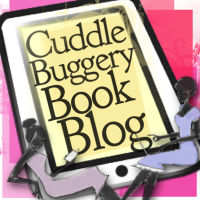It’s just a small story really, about among other things: a girl, some words, an accordionist, some fanatical Germans, a Jewish fist-fighter, and quite a lot of thievery. . .
Narrated by Death, Markus Zusak's groundbreaking new novel is the story of Liesel Meminger, a young foster girl living outside of Munich in Nazi Germany. Liesel scratches out a meager existence for herself by stealing when she discovers something she can't resist- books. Soon she is stealing books from Nazi book-burnings, the mayor's wife's library, wherever they are to be found.
With the help of her accordion-playing foster father, Liesel learns to read and shares her stolen books with her neighbors during bombing raids, as well as with the Jewish man hidden in her basement.
I'm not even quite sure how to write a review on this.
Give me a bad book, or an okay book, and I can criticize the hell out of it. I can write you a several thousand word review detailing every reason I did and did not like it. But give me a book like this, and I have no words.
Ironic, really, considering the huge role words play in this.
This is one of those books where I can't say I liked it. I can't even say I loved it. I feel like that's too simple, too shallow of a thing to say for this book. I didn't love it. To express how this book made me feel, a short image, as Death was fond of giving:
A girl sits on a wide hotel bed. There's a book in her hands, dark with the picture of dominoes on the verge of being toppled, the words The Book Thiefscrawled across the top. She isn't moving. She's barely even blinking. Another girl comes up and sits next to her, nudges her shoulder, but she still doesn't move.
That was me.
This book didn't make me cry. It didn't make me sob.
I was too numb for that.
I want to explain to you why this book made me feel the way it did, why every person should read it, but I just can't do that. I can't pick this book apart, even in a positive way.
Just read it. Please. Just . . . please.


















